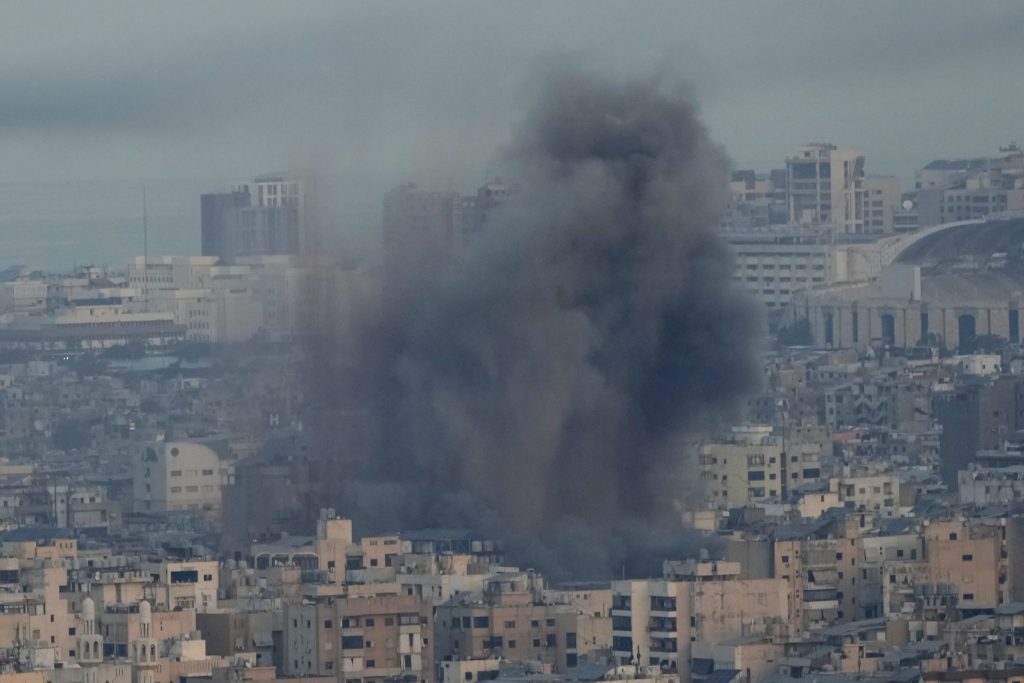Israeli jets launched strikes on the southern suburbs of Beirut early Wednesday, marking the first such attack in nearly a week. The strikes targeted Hezbollah assets in the Dahiyeh suburb, which is heavily populated, and hit a weapons warehouse located beneath a residential building. The Israeli military issued an evacuation warning on social media, notifying residents in the area of the imminent strike. This comes after Lebanese caretaker Prime Minister Najib Mikati indicated that the United States had assured him that Israel would reduce its strikes on Beirut. The number of casualties from the strikes was not immediately clear, according to Lebanese state media.
The conflict in the region escalated one year ago when the Palestinian militant group Hamas killed over 1,200 people, taking hostages and causing Israel to launch its military operation in Gaza, resulting in the deaths of thousands of Palestinians. Iran-backed Hezbollah also began launching rockets into Israel in solidarity with Hamas. The situation further deteriorated with Israel’s ground invasion of Lebanon, displacing an estimated 1.2 million people. This ongoing conflict has resulted in casualties, displacement, and turmoil in the region.
In addition to the Beirut strike, Israeli air raids hit the southern Lebanese town of Qana, killing 10 people and injuring 15 others. conflicting casualty figures from different authorities could not immediately be confirmed. Qana has historical significance, having been the site of a 1996 Israeli artillery strike on a United Nations compound that resulted in civilian deaths. Local reports indicated multiple strikes in the town on Tuesday night. The toll from the strikes in Qana could potentially increase as rescue operations continue.
The Biden administration has issued a warning to Israel, stating that Israel must significantly increase the amount of humanitarian aid allowed into Gaza or risk losing access to critical U.S. weapons funding. The letter from Secretary of State Antony Blinken and Defense Secretary Lloyd Austin sets a deadline for Israel to ensure a specified amount of aid trucks enter Gaza daily, implement humanitarian pauses, and enhance security for aid sites. Failure to comply may have implications for U.S. policy, according to the letter, which emphasizes the urgency of addressing the humanitarian crisis in Gaza.
The U.S. warning to Israel underscores concerns about the ongoing crisis in Gaza, where there are severe shortages of food, water, and medical supplies, according to aid groups and the United Nations. The Biden administration’s letter reminds Israel of U.S. laws designed to prevent military support to countries that hinder the delivery of humanitarian aid. While the letter is framed as conveying a sense of urgency rather than a direct threat, it highlights the pressing need to address the humanitarian situation in Gaza amid ongoing conflict and instability in the region.












